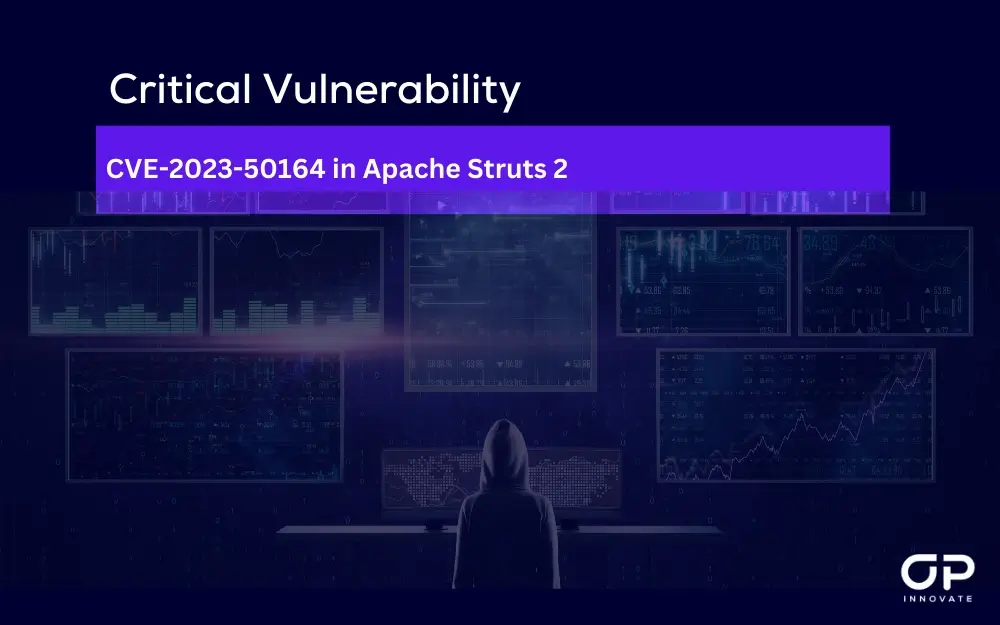A new critical remote code execution (RCE) vulnerability, CVE-2023-50164, has been identified in Apache Struts 2, a popular open source web application framework. This flaw is related to file upload logic and could lead to incorrect path traversal, allowing an attacker to upload and execute malicious files. Given the severity of this vulnerability and the history of similar vulnerabilities being exploited in large-scale attacks, it is imperative that it be patched immediately.
CVE-2023-50164 Vulnerability Details
- Framework: Apache Struts 2
- Vulnerability ID: CVE-2023-50164
- Severity: Critical
- Impacted Versions:
- Struts 2.3.37 (End of Life)
- Struts 2.5.0 to 2.5.32
- Struts 6.0.0 to 6.3.0
- Patched Versions:
- Struts 2.5.33
- Struts 6.3.0.2 or later
- Discovery: Steven Seeley of Source Incite
- Impact: Remote Code Execution via file upload and path traversal
Technical Analysis
This vulnerability is caused by a flaw in the file upload logic within the Struts 2 framework. This flaw allows unauthorized path traversal, allowing an attacker to upload malicious files to the server. Once uploaded, this file can be executed, resulting in complete remote code execution on the affected server. This vulnerability is of particular concern because Struts 2 is commonly used in enterprise web applications.
Mitigation Steps
- Immediate Patching Required: Administrators of applications using Apache Struts 2 should immediately upgrade to Struts version 2.5.33 or 6.3.0.2 or later.
- No Workarounds Available: There are no alternative workarounds to mitigate this issue, making upgrading the only solution.
- Verify Application Integrity: Post-upgrade, verify the integrity of web applications and check for any signs of compromise.
- Regular Security Audits: Conduct regular security audits of the applications to ensure ongoing security and compliance.
Related Threats and Precedents
- Historical Exploits: A similar vulnerability in Apache Struts (CVE-2017-5638) was exploited in the notorious Equifax breach in 2017, emphasizing the potential risk of such vulnerabilities being targeted by threat actors.
Conclusion
Given the critical nature of CVE-2023-50164 and the widespread use of Apache Struts 2 in enterprise web applications, this vulnerability poses a significant risk. Since there is no workaround, you should patch it immediately to prevent potential exploits that are reminiscent of previous large-scale security breaches.
Recommendations for Developers and Administrators
- Upgrade to the patched versions of Apache Struts immediately.
- Regularly update and audit all components of web applications.
- Monitor for suspicious activities indicating a breach or an attempt to exploit this vulnerability.
Intelligence Source Attribution
This CTI report is based on security advisories published by Apache and information from Source Incite, which discovered and reported the bug. The historical context in which similar vulnerabilities have been exploited in major cyberattacks underscores the urgency of addressing this issue.










